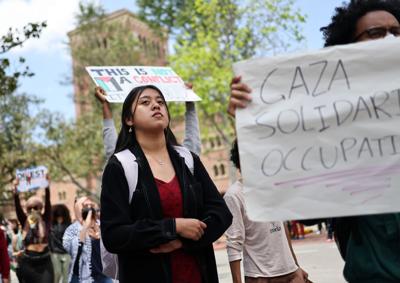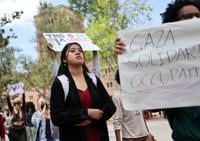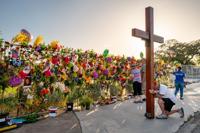When I decided to go to the Annenberg School for Communication and Journalism at USC, I had no idea the university had such a long history of being a conservative private college.
I only cared that their journalism program was top three at the time, among the best in the nation. I didn’t know I would be part of the four percent of Latinos on campus, at the time, or that the school newspaper reflected many of the conservative values the university has championed throughout decades. I didn’t know, because I didn’t grow up here.
But I certainly realized all of this once I was on campus, taking classes with students from all over the world, many of which had paid their tuition in full with their trust funds and wealthy parents. I would see them slide their food allowance cards in the cafeteria while I tried to make a food budget for the week. I’m not going to pretend I didn’t have privileges, I know even being there was a privilege, but as the Mexican saying goes, hay niveles. There are levels of wealth and privilege that some USC students had that I didn’t.
Along with that wealth comes the conservative views that many students, teachers and administrators held. I clearly remember when the posts along Trousdale Parkway had been decorated with rainbow flags, many of them were ripped apart within days.
So I was not surprised when USC Provost Andrew Guzman announced that Asna Tabassum would still serve as valedictorian, but would not be allowed to speak during the commencement ceremony. I was also not surprised when students were arrested after protesting on campus in support of Palestine.
USC President Carol Folt defended the university's response to the protest, which include violently cracking down on protestors and canceling graduation ceremonies, while UCLA sent in observers who did not arrest students and so far their encampment has remained peaceful, according to the L.A. Times. This contrast in response is not surprising to me, but nevertheless shows the clear difference between the two top universities in Los Angeles.
This post may not reach you President Folt, but as a USC alumna I ask that you reconsider the actions you have taken to create an atmosphere of silence and repression. USC should stand for freedom of speech, for giving students a voice when so many others are trying to silence them. I understand that many may worry that a pro-Palestine encampment can send the wrong message to your funders, but look at UCLA, they also have counter protesters waving the Israeli flag. There should be space at USC for all voices to be heard.
Allow Asna Tabassum to speak at commencement. Allow a speech on pro-Israeli views if you need to. Although, to be clear, even the United Nations has recognized that over 31,184 Palestinians have been killed and 72,889 injured in Gaza as of this writing. It may not be the university’s role to push for a ceasefire, but it can certainly allow its students space to present this argument in the logical, reasonable way that USC professors have endeavored to instill on them.
What the Annenberg school taught me well is that it is important to give everyone the space to speak their truth. It is a disservice to the Annenberg School for Communication and Journalism, still one of the top schools in the country, to silence students who are asking to be heard.











(0) comments
Welcome to the discussion.
Log In
Keep it Clean. Please avoid obscene, vulgar, lewd, racist or sexually-oriented language.
PLEASE TURN OFF YOUR CAPS LOCK.
Don't Threaten. Threats of harming another person will not be tolerated.
Be Truthful. Don't knowingly lie about anyone or anything.
Be Nice. No racism, sexism or any sort of -ism that is degrading to another person.
Be Proactive. Use the 'Report' link on each comment to let us know of abusive posts.
Share with Us. We'd love to hear eyewitness accounts, the history behind an article.